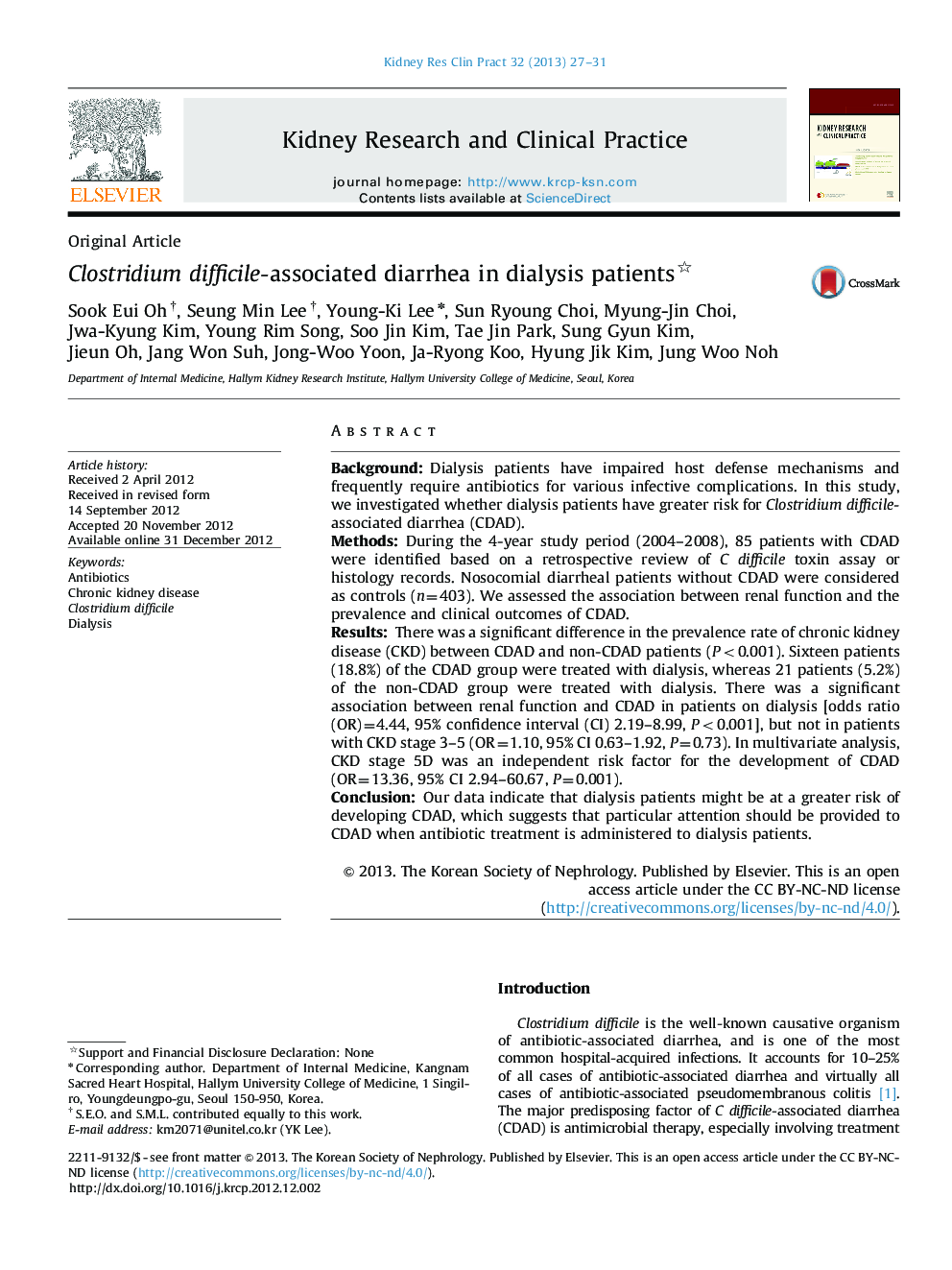| Article ID | Journal | Published Year | Pages | File Type |
|---|---|---|---|---|
| 3892252 | Kidney Research and Clinical Practice | 2013 | 5 Pages |
BackgroundDialysis patients have impaired host defense mechanisms and frequently require antibiotics for various infective complications. In this study, we investigated whether dialysis patients have greater risk for Clostridium difficile-associated diarrhea (CDAD).MethodsDuring the 4-year study period (2004–2008), 85 patients with CDAD were identified based on a retrospective review of C difficile toxin assay or histology records. Nosocomial diarrheal patients without CDAD were considered as controls (n=403). We assessed the association between renal function and the prevalence and clinical outcomes of CDAD.ResultsThere was a significant difference in the prevalence rate of chronic kidney disease (CKD) between CDAD and non-CDAD patients (P<0.001). Sixteen patients (18.8%) of the CDAD group were treated with dialysis, whereas 21 patients (5.2%) of the non-CDAD group were treated with dialysis. There was a significant association between renal function and CDAD in patients on dialysis [odds ratio (OR)=4.44, 95% confidence interval (CI) 2.19–8.99, P<0.001], but not in patients with CKD stage 3–5 (OR=1.10, 95% CI 0.63–1.92, P=0.73). In multivariate analysis, CKD stage 5D was an independent risk factor for the development of CDAD (OR=13.36, 95% CI 2.94–60.67, P=0.001).ConclusionOur data indicate that dialysis patients might be at a greater risk of developing CDAD, which suggests that particular attention should be provided to CDAD when antibiotic treatment is administered to dialysis patients.
